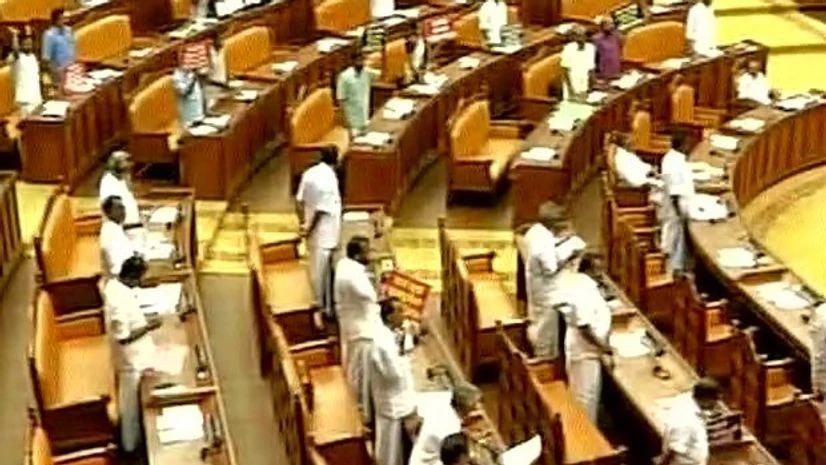Kerala's finances are 'alarming' and there is a need to ensure 20-25% annual growth in tax collection for the next five years, according to a white paper tabled in the state assembly on Thursday.
The white paper tabled by Finance Minister T M Thomas Issac said that for a state holding a negative cash balance in reality, it was an impossible task to take on immediate and short-term liabilities of over Rs 10,000 crore and that the situation was 'alarming'.
Apart from meeting the day-to-day challenge of keeping the treasury afloat to meet the routine expenditure of administrative machinery, Kerala was constantly facing grave paucity of resources for financing all its other plan and capital expenditure, the report said, adding the state has been living on a 'financial lie'.
More From This Section
The annual plan size during this period had been fixed at about 10-15% even beyond the state's estimated capacity - to announce an artificially-bloated plan size each year, the minister said.
In the process, unfortunately, budgets have lost their sanctity and budget speeches have become exercises in conjuring up unachievable visions of schemes and projects, he claimed.
Kerala was also unable to reduce revenue expenditure beyond a certain extent due to commitments in the social sector and increase in salary, interest payments and pension, which is mainly attributed as reason for its burgeoning revenue deficit of the state, he said.
However, the minister said, government would check non plan revenue expenditure, which was necessitated as the previous government had announced various projects which were not included in the budget and were sanctioned as Outside the Agenda (OA) by the cabinet.
Citing an example, he said about Rs 700 crore to Rs 800 crore had been spent for former Chief Minister Oommen Chandy's pet Mass contact programme. Such heads of expenditure added to rise in non plan revenue expenditure, he said.
The report said efforts would be made to galvanise tax collection machinery in all departments, mainly in commercial taxes, motor vehicles, registration, revenue and excise.
Kerala would have to gear up its tax machinery and ensure that growth rates in tax collection are sustained at 20-25% per annum for the next five years, it said.
"There is no escape from this conclusion, given the limited range of fiscal choices available to the state', it said.
The report said there was need to mobilise off budgetary resources through various financial and infrastructural institutions in Kerala to complete badly needed major capital projects.
It also stated that events like Brexit and the oil price recession would impact the national economy and have its effect on the state as well.
"We will have to be flexible in adapting to situations that might emerge in the future," it said.
The immediate concern for the Kerala economy was from the risk of NRI remittances dwindling, the report said.
Though the total volume of remittances in rupee terms had not shown any serious signs of shrinking, once an allowance was made for exchange rate variations, the figures might just belie any optimism, it said.
The fall in rubber price and of other commercial crops has also had an impact on state's economy, it said.

)
